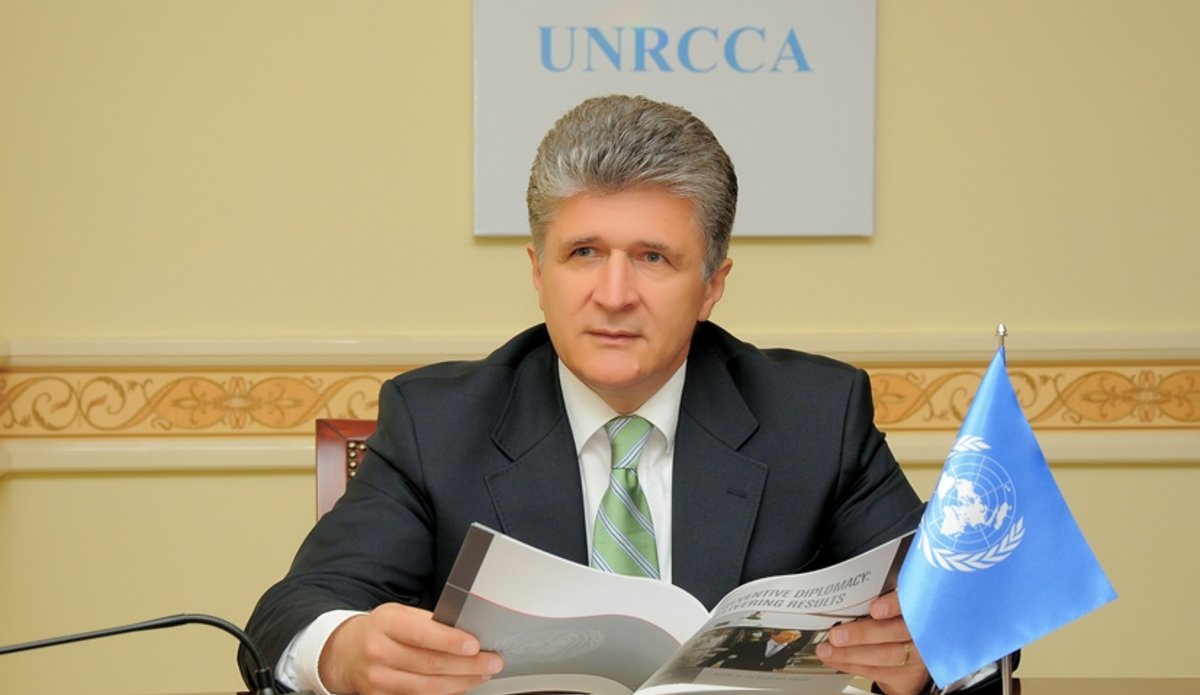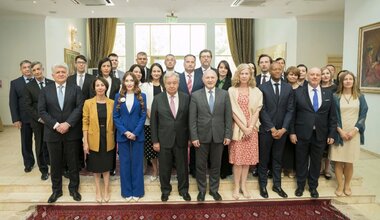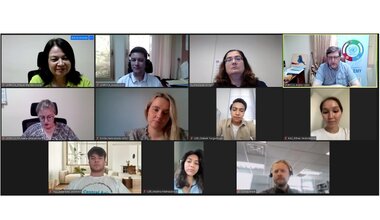Statement by SRSG Miroslav Jenča at 2011 SPECA Economic Forum "20 years of regional economic cooperation and integration in Central Asia: successes, challenges and prospects"
ASHGABAT, Turkmenistan
Dear Participants,
I would like to welcome all of you to Ashgabat and to thank the Turkmen Government, UNECE and ESCAP for convening a meeting to address the important issue of regional economic cooperation in Central Asia.
It has become evident in the last two decades that processes related to regional integration, anywhere in the world, are not straight forward. The national interests of neighbouring countries do not always converge. In Central Asia, some regional mechanisms have failed to function effectively after being established. Nevertheless, areas of enhanced cooperation have developed. While the overall picture remains fragmented, I must underline that the trend is positive and that the region is gradually moving towards closer economic ties, even if it happens at different speeds among individual Central Asian countries.
The former Soviet Central Asian republics inherited a common energy and transport infrastructure, which can open the door to greater regional interaction. Better coordinated policies in such a resource-rich region could also bring better access to global markets.
The countries in the region have great potential to work together and support each other in areas such as cross-border trade, energy, transport and infrastructure. It is important to understand that energy supply and infrastructure development cannot be done in an isolated manner, but requires regional engagement. Regional cooperation is particularly important when it comes to shared water and energy resources.
Regional economic cooperation and security are closely linked together. We saw how important it was to reestablish cross-border trade after the tragic events in Kyrgyzstan last year. This was one of the crucial factors allowing for the return to normal life, particularly in the South of Kyrgyzstan. Cooperation across borders is key for the prevention of conflict and helps to maintain and reinforce regional stability.
The UN Secretary-General in his recent report "Preventive diplomacy: delivering results" indicated that "preventive diplomacy today is being conducted by a broader array of actors, using wider range of tools, than ever before". Promotion of regional economic cooperation is one such element of preventive diplomacy.
Economic crises, along with political, social and human rights grievances, often heighten the risk of violence and conflict in a society. For many, the recent global recession has led to unemployment and deep poverty, and in turn, disillusionment and frustration with the nation-state, which is seen as failing in its responsibility to provide for its people. Often, such crises arise from factors beyond the control of one country alone. It has become increasingly evident that these crises can only be addressed through cross-border cooperation; mutual support and assistance. Regional cooperation can help to better address internal pressures and protect against external threats.
The 2011 World Bank Development Report states that "for most states, on most issues, the region rather than the world bears the greatest brunt of spillover from violence. Regional cooperation offers large potential rewards on issues like the illegal transit of commodities and the expansion of legal, productive opportunities for trade".
UNRCCA, as a UN special political mission with a regional mandate, is well positioned to promote regional cooperation and complement efforts made by UNECE, ESCAP and other UN agencies. In the SPECA context, the UNRCCA can help frame economic issues within the broader context of security, stability and sustainable development in the region.
For these reasons, we would be pleased to continue our cooperation with the governments of Central Asia and, of course, with our UN partners and other international and regional organizations.
I would like to conclude by underlining that successful regional cooperation can only be achieved with the political will of the countries of the region. They, in the end, are the ones in the driver's seat. They are also the ones with the most to gain from such joint work.
I am looking forward to fruitful discussions and concrete outcomes during this event.
Thank you very much for your attention.
 UN
UN





